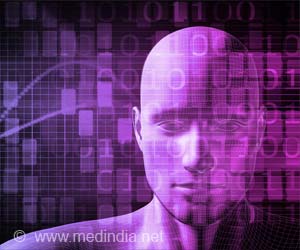
Max Little will be kicking off the TEDGlobal conference in Edinburgh calling for volunteers to contribute to a huge voice database.
Little has discovered that Parkinson's symptoms can be detected by computer algorithms that analyse voice recordings.
In a blind test of voices, the system was able to spot those with Parkinson's with an accuracy of 86 percent
Little became interested in understanding voice from a mathematical perspective while he was studying for a PhD at Oxford University in 2003.
"I was looking for a practical application and I found it in analysing voice disorders, for example when someone's voice has broken down from over-use or after surgery on vocal chords," the BBC quoted him as saying.
Advertisement
But a chance meeting with someone from Intel changed that.
Advertisement
This includes funds for the chipmaker to develop its own projects to monitor the symptoms.
"They were using devices that detect breakdown in dexterity and accelerometers but they had also recorded the voices of around 50 patients with Parkinson's," Little said.
The recordings were detailed as the team had recorded the patients once a week over a six-month period.
"They had an enormous amount of data but they didn't know what to do with it. So we wondered whether my technique would work.
"They set me a blind test to see if I can tell them which ones had Parkinson's. I had 86 percent accuracy using the techniques I'd developed.
"This is machine learning. We are collecting a large amount of data when we know if someone has the disease or not and we train the database to learn how to separate out the true symptoms of the disease from other factors," he said.
Voice patterns can change for a number of reasons, including throat surgery, heavy smoking and even just having a common cold.
But Little believes the system will be smart enough to tell the difference.
"It is not as simple as listening for a tremor in the voice. That tremor has to be in context of other measures and the system has to take in other factors such as if someone has a cold," he added.
Source-ANI














